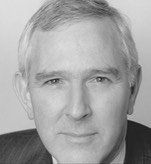As characters in Embers of War have to deal with the effects of trauma caused by the war, I read two accounts by soldiers who were traumatised during the Italian campaign.
Alex Bowlby’s The Recollections of Rifleman Bowlby gives a vivid account of his experience in the infantry in 1944 which led to his breakdown. Although I had met him in Hampstead in the 1960s, it was only much later that I read this account of the harrowing effects of trauma on the soldiers involved. I also read Mussolini: His Part in My Downfall by Spike Milligan. Once I got past the stream of puns and jokes, I found this a poignant account of a man overcome by the experience of war.
Looking for a fuller understanding of the subject, I turned to Trauma by Professor Gordon Turnbull which includes many moving accounts of his work with people overwhelmed by the flashbacks, nightmares and sense of isolation that can follow traumatic events. I summarise in the following paragraphs my understanding of some of the book’s key insights.
Traumatic Stress Disorder is caused by exposure to an event/events outside the normal run of human experience over which the person has no control and which makes them feel under threat.
Such experiences can lead to panic attacks, which are adrenaline surges causing heart palpitations, sweating, feeling out of control. The original attack can be obscured by shame, guilt or anger. The person may be especially vulnerable if he or she has already experienced traumatic events, especially where there are similarities between the two occurrences.
Symptoms include flashbacks (re-experiencing the traumatic event as if it were happening now), hypervigilance, nightmares, insomnia, irritability, anxiety and numbness (the shutting down of emotions, the inability to have feelings, and social withdrawal).
In Post-Traumatic Stress Disorder (PTSD) the flashbacks are like panic attacks but are characterised by vivid recollections of what was seen, heard, tasted, touched, or felt at the time of the trauma. With panic attacks the person is aware of here and now; with PTSD they’re back there reliving the horrors.
After trauma, sufferers often try to conceal the reality from loved ones. Symptoms are expressed in arguments, brawling or domestic violence. Sufferers often use alcohol, not to get high but to feel normal.
Historically PTSD symptoms were seen as evidence of a character defect, not as a natural response. In WW2, Lack of Moral Fibre often led to demotion. More recent treatment views PTSD as a normal reaction to an abnormal event: the flashbacks and dreams are part of coming to terms with the psychological injury caused by the horror. The key question is therefore not “what is wrong with you?” but rather “what happened to you?
